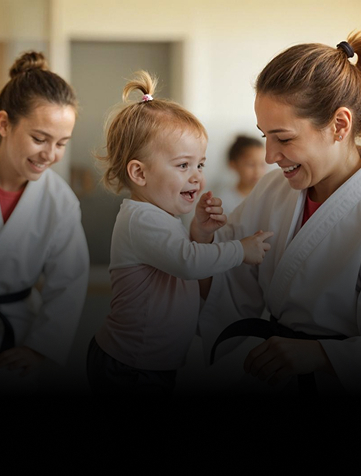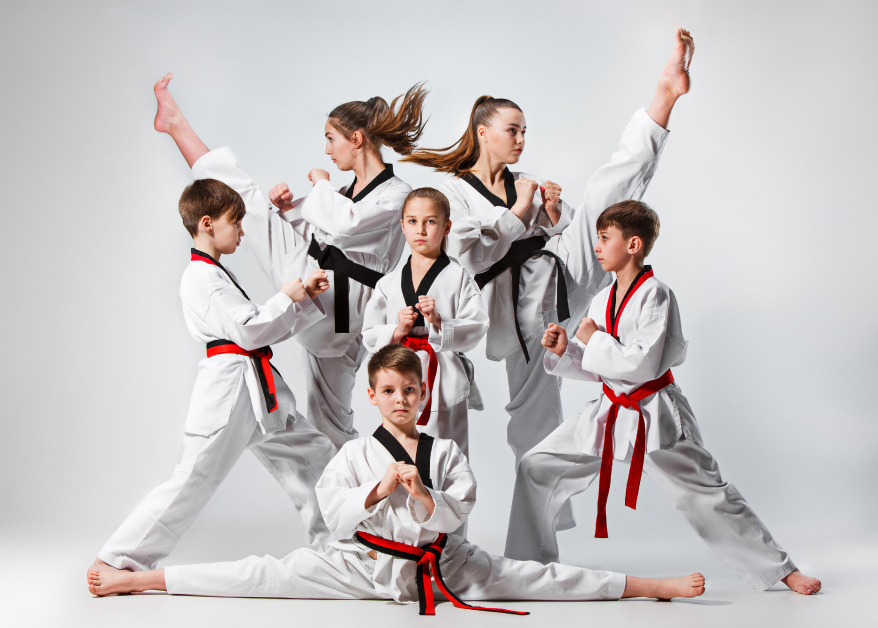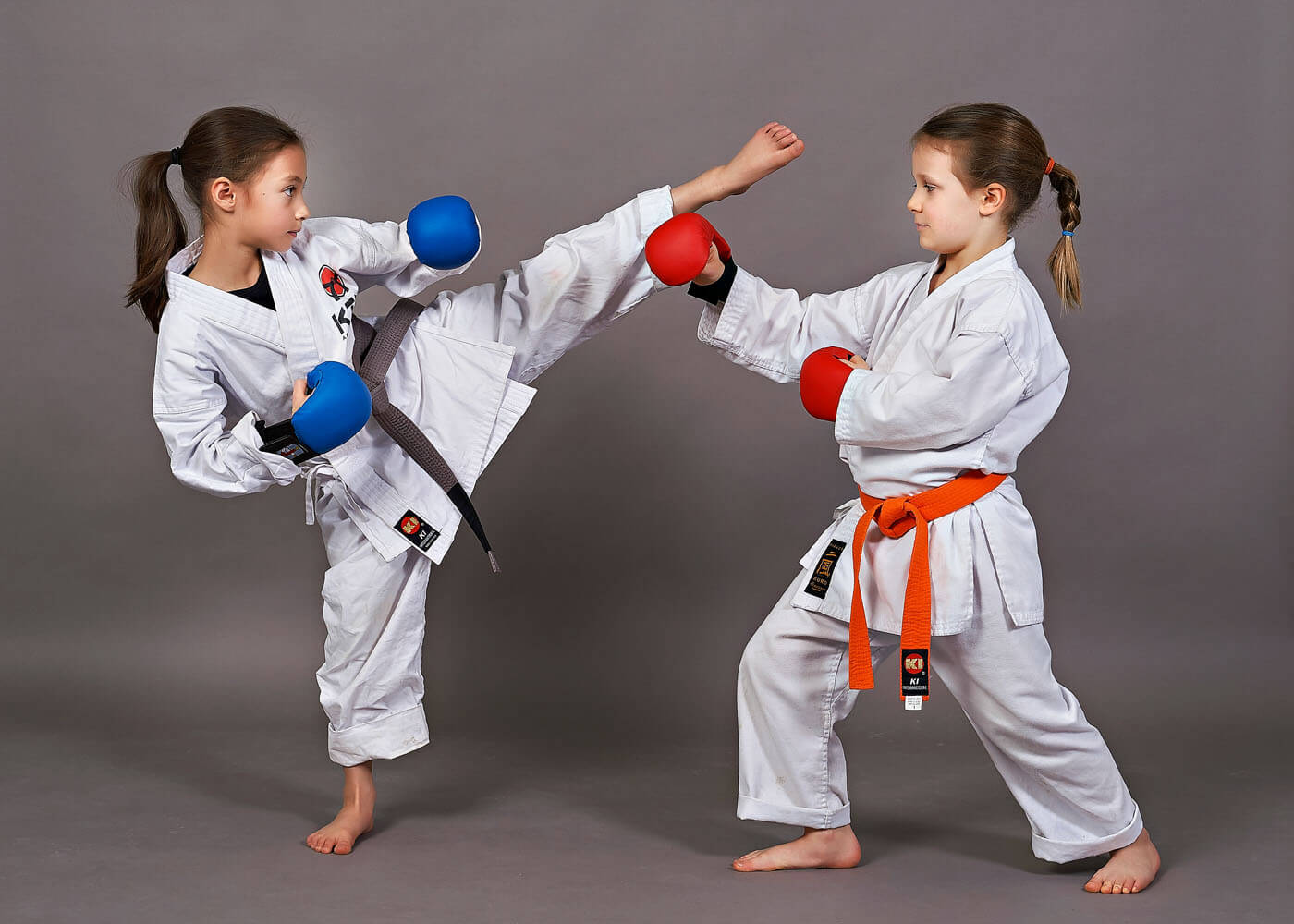Legacy Martial Arts Salisbury – Start Your Child’s Path Today
Legacy Martial Arts Salisbury – Start Your Child’s Path Today
Blog Article
How Karate for Children Can Increase Confidence and Self-control in Youthful Martial Artists
Karate for children provides a distinct chance to develop self-confidence and discipline in young martial artists. As they discover brand-new strategies and face obstacles, they not only get abilities yet also establish a strong sense of self-worth. This structured environment motivates them to respect the trip of improvement. However exactly how does this training convert into their day-to-day lives? Discover the deeper links that make karate even more than just a sport.
The Value of Confidence in Childhood Advancement
Confidence is an essential foundation in childhood years growth. When you support your kid's self-esteem, you empower them to face challenges, take dangers, and express themselves easily. Children with confidence are more happy to check out new activities and social circumstances, which can lead to enduring friendships and valuable experiences.Encouraging your child to tip out of their convenience zone promotes strength. They learn that failure isn't completion however rather a stepping stone to success. By celebrating their success, regardless of just how little, you aid them acknowledge their capacities and worth.In this journey, support and positive reinforcement from you play a crucial role. Whether it's with appreciation or merely existing, your participation boosts their self-confidence. As they grow, this self-assurance ends up being a lifelong possession, outfitting them to browse both difficulties and possibilities with a strong sense of self.
How Karate Shows Self-control and Focus
Karate assists you construct technique and focus through its organized training routine. As you exercise mindfulness throughout each session, you'll discover to concentrate far better both on and off the mat. And also, establishing and achieving goals in karate enhances your capacity to stay attentive and dedicated.
Structured Training Regimen
While you participate in karate training, you'll rapidly find just how a structured regimen imparts self-control and emphasis in young practitioners. Each class complies with a details layout, including warm-ups, method practice, and sparring. This uniformity instructs you to appreciate the process and devote to enhancement. As you discover forms and techniques, you develop a feeling of responsibility for your own progress.The structured environment encourages you to set goals, whether grasping a brand-new belt or developing a kata. You'll find that staying concentrated throughout classes and drills hones your focus. The self-control you cultivate in karate extends beyond the dojo, positively influencing your schoolwork and daily routines. Each session strengthens the value of commitment, aiding you expand right into an extra regimented person.
Mindfulness in Practice
As you exercise martial arts, you'll discover that mindfulness becomes a vital part of your training. Each action needs your full focus, aiding you stay focused on today minute. You'll discover to ignore distractions and focus on your breathing, movements, and purposes. This enhanced awareness hones your reflexes and boosts your discipline.During sparring or types, you'll uncover the value of being emotionally present - Karate Salisbury MD. You'll discover how this emphasis not just improves your technique yet also builds your confidence. By practicing mindfulness in karate, you cultivate patience and durability, important characteristics that prolong beyond the dojo. In this method, martial arts teaches you to harness your mind, helping you establish a disciplined method to challenges both on and off the floor covering

Personal Goal Setting Techniques
Establishing goals in martial arts isn't simply concerning gaining belts; it's a powerful means to grow self-control and focus. When you establish details, attainable targets, you create a roadmap for your development. Rather of just aiming to enhance your kicks, try focusing on grasping a specific method each month. This strategy keeps you motivated and engaged.Breaking down larger goals into smaller sized, manageable actions aids you track your development and commemorate small victories along the road. Whether it's improving your position or enhancing your sparring endurance, every goal enhances your dedication. As you achieve these goals, you'll construct self-confidence in your skills and develop a strong feeling of technique that expands past the dojo into daily life.
Building Strength Through Martial Arts
Martial arts, especially martial arts, uses children a special chance to construct resilience in a supportive setting. In courses, they encounter obstacles that press their restrictions, whether it's competing or understanding a new method with a partner. Each trouble, like a missed kick or a shed match, comes to be a chance to find out and grow.As they exercise, kids find out to accept discomfort and maintain trying, also when points obtain challenging. They uncover that failure isn't completion; it becomes part of the journey. This attitude helps them get better stronger, not simply in the dojo, but in daily life.With each challenge they overcome, your kid builds confidence in their capacity to take on barriers, sustaining their determination. Via martial arts, they'll recognize that strength isn't almost physical strength; it's concerning psychological my sources grit and willpower, equipping them to deal with whatever life throws their method.
The Function of Respect in Karate Educating
Regard is a foundational concept in karate training, promoting a culture of technique and camaraderie amongst trainees. When you step onto the dojo flooring, you're not just discovering methods; you're likewise learning to appreciate your trainers, peers, and the art itself (Karate Salisbury MD). Bowing at the start and end of course isn't simply a procedure; imp source it signifies your recommendation of others' initiatives and dedication.As you create mutual respect, you'll discover it boosts your learning experience. You'll listen more attentively to your instructor and gain insights from fellow pupils. This setting urges positive objection and assistance, permitting everyone to grow together.Moreover, regard grows self-discipline. Acknowledging the value of effort and humility assists you stay concentrated on your training. In turn, this respect converts into your everyday life, enhancing your communications and connections outside the dojo. Via martial arts, you discover that regard is necessary for individual growth and community structure
Establishing Goals and Achieving Success in Karate

Social Skills and Team Effort in the Dojo
While training in the dojo, youngsters normally establish necessary social skills and teamwork capabilities. As they exercise along with peers, they find out to connect effectively, share space, and assistance each other. Each class presents opportunities for collaboration, whether it's throughout partner drills or team workouts. This synergy promotes friendships and creates a sense of belonging, making the dojo a nurturing environment.Kids additionally obtain important problem resolution skills. When they experience obstacles, such as arguments during sparring, they discover to navigate these situations constructively. They practice patience and empathy, understanding that everybody has various strengths and weaknesses.Moreover, getting involved in team tasks grows a feeling of responsibility. You'll see your youngster learning to count on teammates and take obligation for their duty in a team. These experiences not just improve their fighting styles journey but additionally furnish them with social tools they'll carry right into various other areas of life.

The Long-Term Conveniences of Karate Beyond Youth
As children expand up and change into the adult years, the advantages of martial arts prolong much beyond the dojo. You'll locate that the technique and emphasis discovered through martial arts can a league equate into your professional and scholastic life. Setting and attaining goals in fighting styles promotes a solid job values, which can press you to master any kind of endeavor.Moreover, the confidence acquired from understanding techniques and competing can improve your self-confidence, helping you take on difficulties head-on. This resilience becomes vital as you face the uncertainties of adulthood.Additionally, the social skills developed through team effort and sociability in the dojo can bring about far better partnerships in both expert and personal rounds. You'll learn to connect efficiently, willpower problems, and develop a supportive network.Ultimately, karate forms not just skilled martial musicians, yet all-around individuals prepared to tackle the globe.
Regularly Asked Questions
What Age Is Finest to Begin Karate for Children?
You can begin karate as very early as age four or five, but it commonly depends upon your child's maturity and passion. Locating a course that matches their age and energy level makes a large distinction.
Are There Any Type Of Health Benefits From Exercising Karate?
Yes, practicing karate offers many health and wellness advantages. You'll boost your versatility, control, and toughness while improving cardio physical fitness. And also, it enhances focus and mental wellness, making it an amazing choice for general physical and psychological health.
How Often Should Children Participate In Karate Courses?
You should motivate your youngsters to attend karate classes at the very least a couple of times a week. Uniformity helps them learn strategies effectively and create skills, making their experience more delightful and fulfilling in the lengthy run.
Can Karate Help With Handling Anxiety in Children?
Yes, martial arts can help take care of anxiety in kids. It educates emphasis and self-constraint while offering a safe outlet for energy. You'll see your child growing extra tranquil and confident as they exercise regularly.
What Equipment Is Needed for Kids Starting Martial Arts?

Report this page